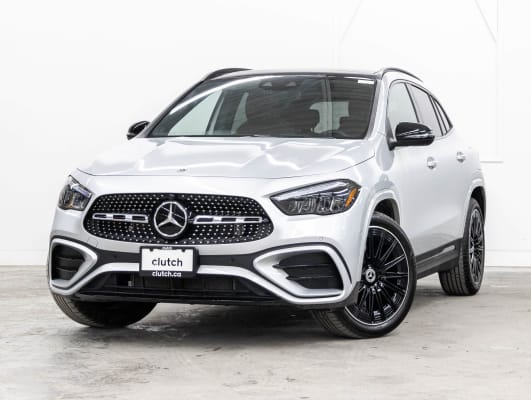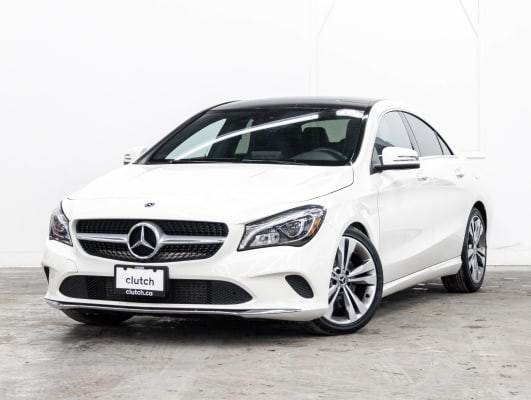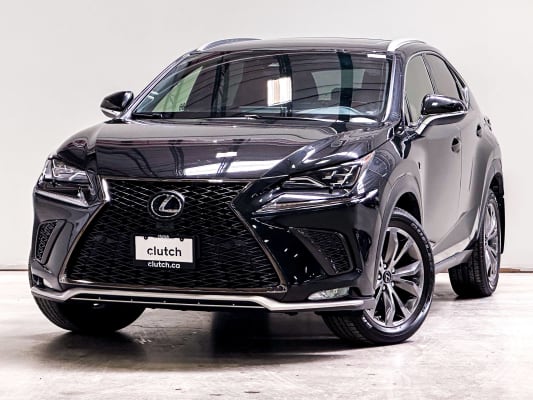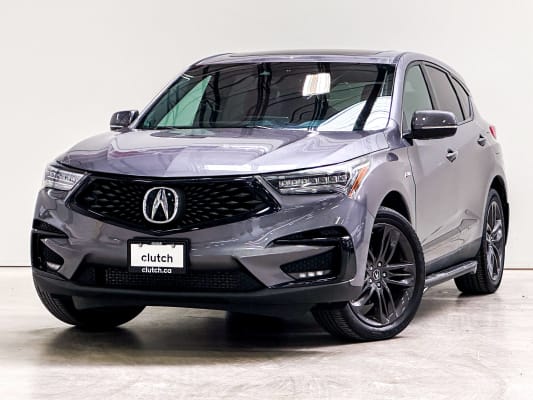When buying a car in Canada, most people think about traditional auto financing, leasing, or paying in cash. But what about using a credit card? With big-ticket purchases often linked to reward points or cash-back incentives, it’s no surprise that some shoppers wonder if they can charge their next vehicle.
It’s a fair question, especially for buyers looking to maximize rewards or simplify payments. At Clutch, you can use a credit card to place a refundable $100 deposit to hold a vehicle, but we don’t accept full payment by credit card. And we’re not alone. The vast majority of dealerships in Canada also don’t allow customers to pay for a vehicle in full using a credit card.
So why is that? And what should you know before reaching for your card? Below, we break down the pros, cons, and alternatives to using a credit card to buy a car.

Why Most Dealerships Don’t Accept Credit Cards
Most dealerships steer clear of accepting credit cards for full vehicle purchases due to a combination of cost, risk, and complexity. One of the biggest barriers is credit card processing fees, which typically range from 1.5% to 3% of the transaction amount. On a $25,000 vehicle, that could mean $750 or more in fees, costs that cut directly into the dealership’s margins.
There’s also the risk of chargebacks, where a customer disputes a transaction and the dealership must prove the sale was legitimate. In the auto industry, where transactions involve legal ownership and financing contracts, this can be especially risky and difficult to unwind.
Dealers also worry about encouraging poor financial decisions, as high-interest credit cards can push buyers into unmanageable debt. On top of all this, credit card companies often impose transaction limits, forcing dealers to split up payments manually—a time-consuming and error-prone process. Altogether, it’s why most sellers, including Clutch, opt not to accept full credit card payments.
When You Can Use a Credit Card
While most dealerships don’t allow full payment via credit card, there are still a few situations where your credit card can come in handy. At Clutch, for example, you can use your credit card to place a fully refundable $100 deposit to hold a vehicle while you finalize your decision. This lets you secure your spot in line without committing to the full purchase right away.
Some traditional dealerships may allow partial credit card payments or negotiate one-off cases, usually capped at a few thousand dollars. These exceptions typically depend on the dealership’s policies and the buyer’s situation. Still, they’re rare and usually require prior approval, especially for amounts that exceed a standard daily limit.
Pros of Using a Credit Card (When Allowed)
If a dealership does let you use a credit card—whether for a deposit or partial payment—there can be a few potential benefits. Many credit cards offer rewards programs, such as cashback or points, which can add up quickly on a large purchase. Some cards even include welcome bonuses that you might qualify for if the transaction meets a spending threshold.
There’s also the appeal of 0% introductory APR offers. If you can pay off the balance quickly, using a credit card with no interest can be a useful short-term financing strategy. And for some buyers, using a credit card helps with cash flow, giving them extra time to move funds or coordinate payment without liquidating savings immediately.

Cons of Using a Credit Card for a Car
Despite the potential upsides, there are significant downsides to using a credit card for a car purchase. The average interest rate on Canadian credit cards is around 19%, which can lead to substantial debt if the balance isn’t paid off quickly. On a $15,000 charge, that interest adds up fast, far more than what you’d pay on a typical car loan.
There’s also the issue of credit limits. Most cards aren’t set up to handle such large transactions, and even if they are, it may trigger fraud alerts or require special authorization. Charging a large amount can also harm your credit score by spiking your credit utilization ratio, a key factor in how your score is calculated. Finally, many premium cards come with annual fees or transaction complications that can turn your payment into a hassle rather than a convenience.
Better Alternatives to Credit Cards
If you’re considering how to pay for your next vehicle, here are a few safer, more cost-effective options than using a credit card:
Auto Loan
This is the most common way to finance a car. Auto loans are secured, meaning the vehicle backs the loan, which typically results in lower interest rates than credit cards. Approval is generally easier too, since lenders can repossess the vehicle if payments aren’t made. Most dealerships, including Clutch, offer financing options that can be pre-approved online in minutes.
Personal Loan
A personal loan doesn’t require collateral, making it a more flexible option. However, because it’s unsecured, interest rates are often higher than those on auto loans. This route might make sense if you want to avoid tying the loan to the vehicle itself or if you’re buying from a private seller.
Bank Draft or Wire Transfer
If you’re paying in full without financing, these are the preferred payment methods at most dealerships. Bank drafts and wire transfers are secure, traceable, and well-suited for large transactions.
How It Works at Clutch
At Clutch, we make things simple. While we don’t accept full payment by credit card, you can still reserve your vehicle with a fully refundable $100 credit card deposit.
From there, you can choose to finance the purchase or pay the remaining balance via cash. Getting pre-qualified online takes just two minutes and won’t impact your credit score.
Every car we sell has passed a 210-point inspection, includes a 3-month/6,000-km warranty, and comes with a 10-day money-back guarantee. So you can shop confidently, without the pressure or hassle of a traditional dealership.

Get Prequalified for an Auto Loan at Clutch
At Clutch, Canada's first 100% online car-buying experience, we have a collection of lenders ready to approve you for a great auto loan with a low interest rate. You can get pre-qualified for a car loan online in just two minutes, with no impact on your credit score.
After you get pre-qualified, check out our inventory of quality pre-owned vehicles. All our vehicles pass a 210-point inspection to ensure they're in top shape. Then we add a 3-month/6,000-km warranty so you're covered if something happens.
On top of that, you get a 10-day test-own period. If you don't love your Clutch vehicle within the first 10 days, return it for a full refund or exchange it for another vehicle.
FAQs About Buying a Car With a Credit Card
Can I buy a car with a credit card in Canada?
Legally, yes—but most dealerships don’t accept credit cards for full car payments. Some may allow partial payments or deposits.
Does Clutch accept credit card payments for cars?
Clutch allows a $100 credit card deposit to reserve a vehicle. The remaining balance must be paid through financing or certified funds.
Why don’t most car dealerships take credit cards?
High processing fees, risk of chargebacks, and administrative hassles make credit cards an impractical option for large transactions.
Are there any benefits to using a credit card for a car purchase?
If accepted, you may earn rewards or cashback, and benefit from 0% intro APR offers—but only if the balance is paid quickly.
What are better alternatives to using a credit card to buy a car?
Auto loans typically offer lower interest rates and better terms. Other options include personal loans, bank drafts, and wire transfers.



.avif)
.avif)

_Thumbnail.avif)
_Thumbnail.avif)




































































































